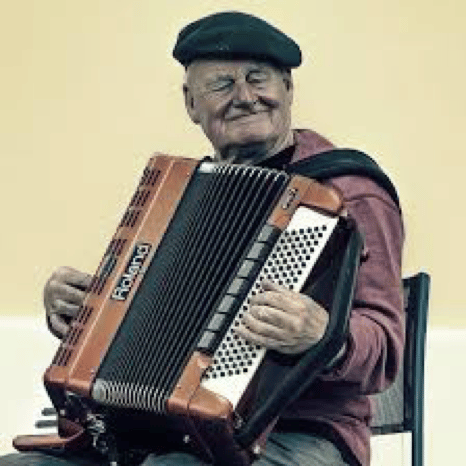
When I was a child I remember that my dentist played soft rock. It was a huge contrast to the classical music my mother played at home and I soaked up those notes and lyrics like a sponge, excitedly anticipating dental visits. As an adult I will hear an old song on the radio and it immediately takes me back to that little room that smelled like Listerine and “berry flavored” fluoride. Music can be that powerful and studies reveal that music may benefit individuals who suffer from dementia, Alzheimer’s disease, and other brain diseases.
In one US study, author Linda Maguire wrote that musical aptitude and music appreciate are two of the last remaining abilities in patients with Alzheimer’s, therefore music can be used as a tool to get past the limitations of the disease, promote cognitive function, and engage with the person. Neuroradiologist Dr. Jonathan Burdette saw increased brain activity when individuals were listening to music. The impact was strongest in brain areas that involve internally focused thought, empathy and self-awareness. It also showed a connection between auditory areas, and memory consolidation areas of the brain. The brain activity was the strongest when the individual was listening to their favorite music.
Music stirs emotions, and emotions bring memories, says alzheimers.net. Coupled with daily routine activities, it can teach individuals suffering from dementia and Alzheimer’s to do simple tasks again. Playing a specific song every teeth brushing, meal time, etc may help the individual associate that song with the specific task. Another area is emotional expression. When I worked at a nursing home, family members constantly verbalized how they felt like they felt disconnected and emotionally distant from their loved one. Alzheimers.net says that if a patient is ambulatory, they can often dance. This can then lead to physical touch which brings up not only memories but a sense of security, and could help loved ones reconnect to their ill family member.
Music is a very simple tool for anyone struggling with caring for and/or communicating with someone who suffers from dementia, Alzheimer’s or other brain illnesses. It could be as simple as singing a familiar song to them. The Mayo clinic suggests singing along when you play music, too, and encouraging hand-clapping, foot-tapping and even dancing if possible. Incorporate music they grew up listening to and favorite genres and songs. Be careful not to play music too loud or too long. The individual’s response to the music can indicate if they are enjoying and engaging, or just getting overwhelmed and agitated. Musical therapy may not work for every person but research suggests it is worth trying. According to the Alzheimer’s Foundation of America, “When used appropriately, music can shift mood, manage stress-induced agitation, stimulate positive interactions, facilitate cognitive function, and coordinate motor movements.”
DISCLAIMER: This article contains information that is intended to help the readers be better informed regarding exercise and health care. It is presented as general advice on health care. Always consult your doctor for your individual needs. Before beginning any new exercise program it is recommended that you seek medical advice from your personal physician. This article is not intended to be a substitute for the medical advice of a licensed physician. The reader should consult with their doctor in any matters relating to his/her health.




